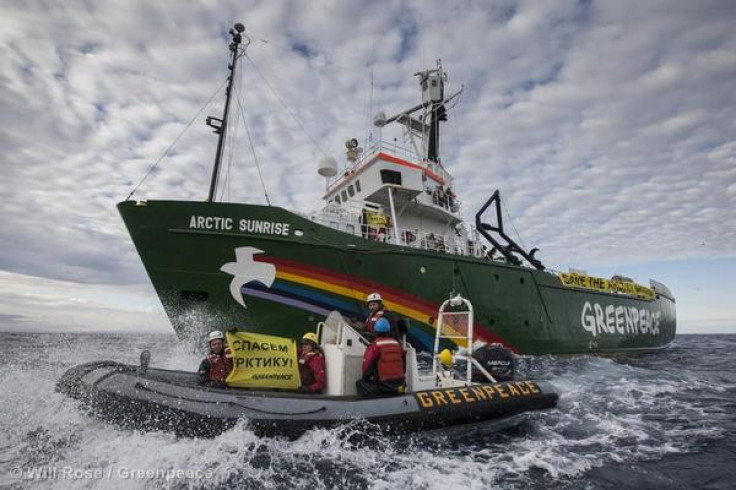All That For Nothing? Greenpeace Loses To Gazprom's Oil Platform In Arctic

Two days after the Russian Parliament voted to give amnesty to the crew of a Greenpeace icebreaker who were detained in September for protesting at an arctic oil platform, state-owned Gazprom announced that the same oil platform produced its first commercial quantities of oil.
"The timing of this announcement is intriguing,” Faiza Oulahsen, one of the 28 jailed crew members from the Greenpeace vessel, the Arctic Sunrise, said. “Now we are going home and Gazprom is licking its wounds.”
The Arctic Sunrise entered the Northern Sea Route area in late August to protest oil drilling in the Arctic Shelf, and it had been shadowed by the Russian Coast Guard ever since.
On Sept. 18, the crew approached an oil platform called the Prirazlomnaya, which is operated by Kremlin-controlled OAO Gazprom (MCX:GAZP), in the Barents Sea. When a crew member tried to scale the platform, he was arrested by Russian forces.
The Russian Coast Guard also fired at least 11 warning shots at the Arctic Sunrise and ordered it to leave Russia's territorial waters.
"Due to the refusal of the Arctic Sunrise captain to halt the unlawful activity, the administration took a decision to stop the ship," the Russian Federal Security Service said. "The Coast Guard was forced to fire warning shots four times from artillery cannon onboard a vessel."
The next day Russian authorities rappelled onto the ship from a helicopter with guns drawn, arresting the crew and two journalists on board.
Finally, after almost three months of pressure by the international community, the Russian Parliament granted amnesty to the 28 crew members and two journalists, now known as the “Arctic 30.”
“Announcing they have started producing oil does not dissuade us, it makes us more determined than ever to grow this global movement to save the Arctic,” Oulahsen said in light of Gazprom’s news. “We’ve already discovered more oil than we’ll ever need if we’re going to avoid dangerous climate change. Looking for more of the stuff in the beautiful fragile Arctic is an act of extreme folly."
© Copyright IBTimes 2024. All rights reserved.












